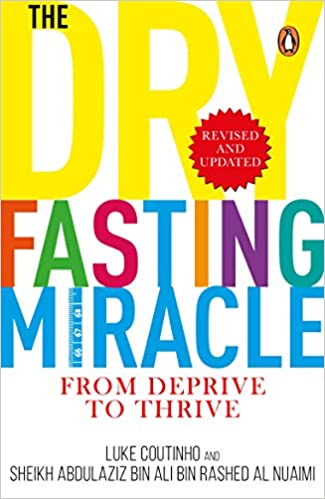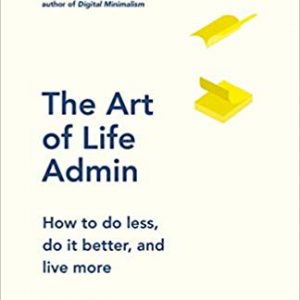Fasting is not new to the Indian culture, nor to the world. Major religions incorporate some or the other form of fasting as a ritual. This age-old practice has much to offer in terms of both physical and mental health benefits. The Dry Fasting Miracle by Luke Coutinho (Penguin eBury Press) is the new revised and updated version of the original book, and adds on more scientific research and evidence.
While fasting is inherent in that it has been a part of human evolutionary history, the author recognizes that it may not suit everyone. However, he says, that if fasting does suit someone, it would work miracles. The book offers an evidence-based guide as to how we can experience its benefits.
Luke Coutinho is a globally renowned holistic lifestyle coach and an award-winning holistic nutritionist. He is the co-author of the bestsellers The Great Indian Diet and The Magic Weight-Loss Pill. This book also has a detailed introduction by Sheikh Abdulaziz Bin Ali Bin Rashed Al Nuaimi, better known as the ‘Green Sheikh’. He is a member of the Ajman royal family in the United Arab Emirates and has made a name for himself as one of the most resilient and vocal proponents of the environment.
Dry fasting, put in very simple terms, is a period of abstinence from both food and water. The book reveals some surprising and relatively lesser known theories such as the following: The bodies makes its own water my metabolizing fats, and hence fasting even without consuming any water is actually beneficial. Of course, the book draws on the belief of the natural healing power of the body. In simple words and aptly crafted chapters it explains why dry fasting works, by quoting research studies and explaining the physiological processes that occur during the dry fasting period. It outlines in detail the benefits of the same. The chapters are interspersed with testimonials from various people who have tried this practice for different reasons and to different extents. This adds on to the authenticity of the philosophy.

The book also establishes the fact that dry fasting has to work in conjunction with other behaviours and practices that form a good balanced healthy lifestyle. For example, one can’t practice dry-fasting and then binge on junk food at other times! One of the key points the book makes relates to the fact that we do many things out of habit. Over time, we have forgotten to listen to our body. Hence, “Listen to your body” is a mantra that is actually the soul of this book.
Dry fasting is a lifestyle. You can incorporate it entirely or choose various elements of the same depending on your individual circumstances. Also, if done in the wrong way, it can damage our health, and hence it’s important to consider these aspects, which are again outlined quite simply in the book. The latter chapters are handy and packed with lists and tips including a sample diet plan and a list of positive affirmations.
This book is definitely a good guide to the benefits and principles of dry fasting, and will give you a good overview and enough information to decide if you should take the plunge! So, read on and find out if dry fasting is for you!
Some takeaways on dry fasting
- Refrain from late dinners and work towards a lifestyle that includes early dinners. This will sort out most health issues.
- With a few days of discipline, you can get into the habit of an early dinner. Once you start having dinner by 6.30 – 7 pm, and eat breakfast the next day by 8.30 am, you would have already built a fasting cycle in the simplest way possible.
- Dry fasting is not a ‘diet’. It is a lifestyle.
- Listen to your body and not the nutritionist, social media or your friend. No expert knows the magic number of fasting that will suit you.
- Fasting is not a cover-up for bad eating habits. You should continue eating sensibly on non-fasting days as well.
- Do not directly start dry fasting. Learn and understand the principles and science behind dry fasting first.
- Indian culture, unfortunately, is one that has normalized late dinners. Our ancestors still used to eat well, in tune with the circadian rhythm.
- Fasting is natural to our bodies. What’s not natural is constantly eating.
- Chew until the food in your mouth is almost liquefied or has lost all its texture. Finish chewing and swallowing completely before taking another bite.
So, if your interest in dry fasting is piqued, do read The Dry Fasting Miracle by Luke Coutinho!




